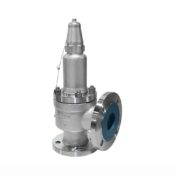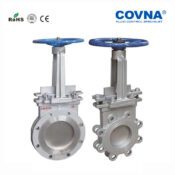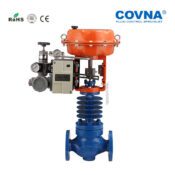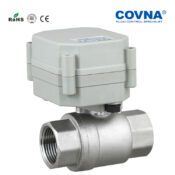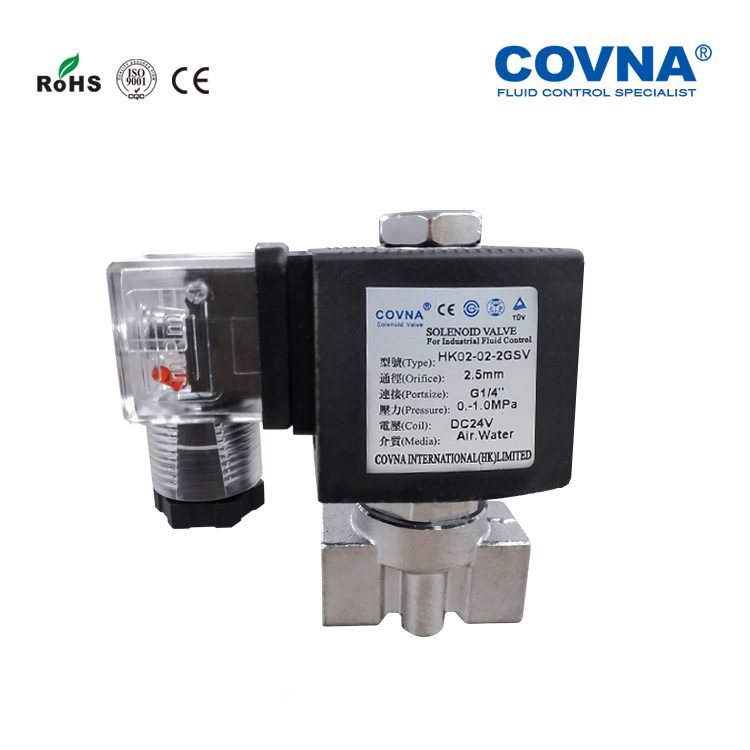
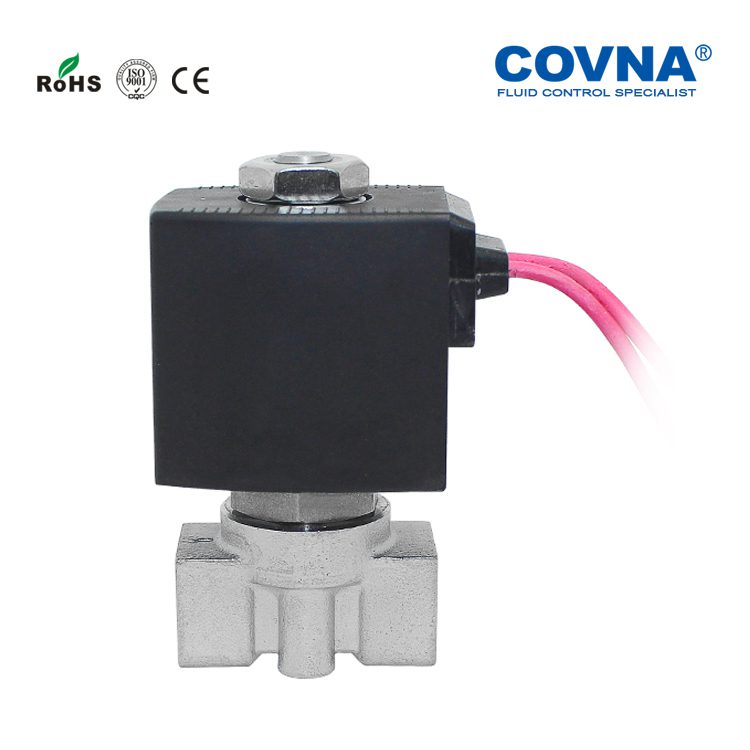
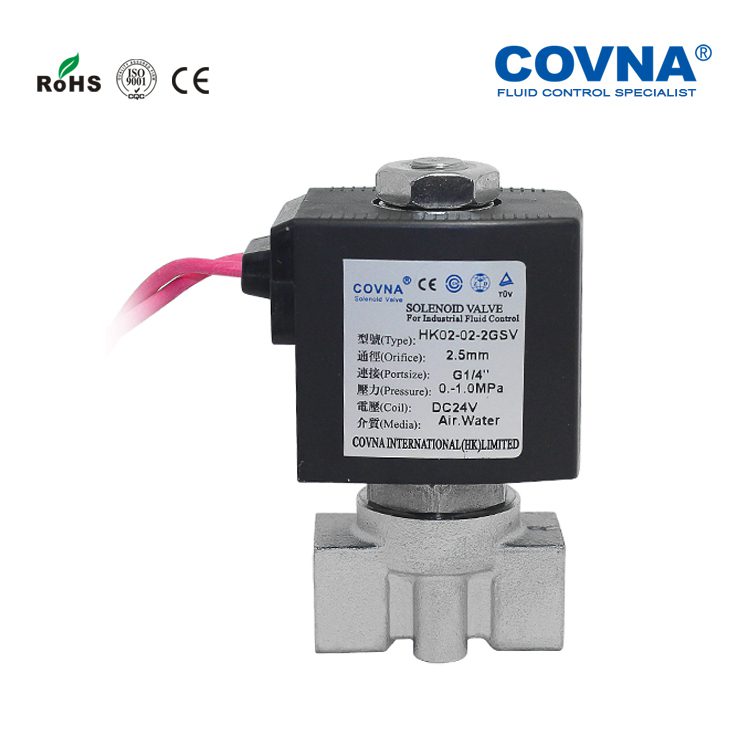
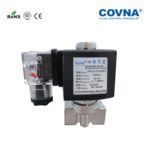
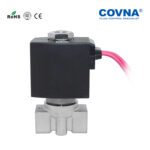
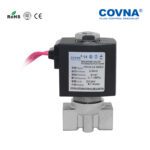
COVNA HK2231015B 12 Volt 24 Volt DC Water Solenoid Valve – Stainless Steel
HK2231015B Stainless Steel Solenoid Valve
has a special structure that reduces the pressure and protects the pipeline. The pressure range is 0.3 to 16 bar. Features include 1 million lifetimes, and quick start/close. COVNA manufactures solenoid valves in all sizes, materials, and voltages for your industries. Consult us to get a suitable valve for your applications!
Model
- Function: Normally Closed / Normally Open
- Pressure: 0.3 to 16 bar
- Voltage: DC-12V, 24V; AC-24V, 120V, 240V/60Hz; 110V, 220V/50Hz
- Temperature of Media: -10 to 180℃ (14℉ to 356℉)
- Suitable Media: LNG, LPG, Gas, etc
- Material: Stainless Steel
Features Of COVNA HK2231015 Solenoid Valves
● Special structure reduces the transient pressure to prevent water hammer phenomena which will protect the valve and pipe system.
● Life span can be at 1 million cycles.
● Low noise, stable work.
● Opened from low pressure with large flow.
● It could change the solenoid coil, which can be used with an explosion-proof coil Exmb I/IL T4 to provide the explosion-proof solution for you.
Technical Parameters Of COVNA HK2231015 Solenoid Valves
| Port size | 1/4″, 3/8″, 1/2″, 3/4″, 1″ | Orifice(mm) | 8, 10, 15, 20, 25 |
| Connection Types | NPT, G | Function | Normally Closed / Normally Open |
| Pressure | 0.3 to16 bar | Voltage | DC-12V, 24V; AC-24V, 120V, 240V/60Hz; 110V, 220V/50Hz |
| Temperature of Media | -10 to 80℃(14℉ to 176℉) | Suitable Media | Water, Air, Oil, Gas, etc |
| Material | Stainless Steel | Tolerance | ±10% |
Dimension of COVNA HK2231015 Solenoid Valves

![]()
- 2W21 12V solenoid valve are automatic solenoid valves for gas water, oil. They are easy and safe to operate.
- This normally used solenoid valve can be used in many fields, usch as, Air, City Gas, Water, Oil, Petroleum, Environemtal Protection, etc.
- Suitable for low head and zero head applications with a coupled diaphragms
![]()

| Port Size | 3/8”~2” | Orifice(mm) | 15, 20, 25, 32, 40, 50 |
| Port Thread | BSPP, BSPT, NPT, FLANGE | Function | Normally closed or opened |
| Pressure | 0-1.0 MPa (10 bar) | Voltage | DC-12V, 24V; AC-24V, 120V, 240V/60Hz; 110V, 220V/50Hz |
| Temperature of media | -10~100℃ (14℉ to 212℉) | Suitable Media | Water, gas, oil, etc |
| Material | Brass, Stainless Steel | Sealing Material | NBR, VITON, PTFE, EPDM |
| Coil | S51B,30VA(AC),24W(DC),IP65,100%ED | ||
| Coil | SD01B,28VA(AC),36W(DC),IP65,100%ED | ||
1.Oil and Gas Industry
Pipeline Flow and Pressure Control: Used for flow and pressure control in natural gas and oil pipelines to ensure stability during transportation.
Gas and Liquid Distribution Systems: Regulates the flow of gases or liquids, ensuring precise control under various operating conditions.
Automation of Distribution Systems: Used in refineries and natural gas processing plants to automate fluid distribution and regulate the reaction processes.
2.Chemical and Petrochemical Industry
Reactor Pressure and Flow Control: Used in chemical reactors, storage tanks, and other equipment to control pressure and flow, ensuring stability in the chemical reaction process.
Flow/Pressure Regulation: Regulates the flow of liquids or gases in processes such as polymerization, refining, and distillation to ensure efficient production.
Steam Control: Regulates the flow and pressure of steam in steam generators and distribution systems.
3.Water and Wastewater Treatment
Water Flow Control: Regulates water flow and pressure in water supply and wastewater treatment systems to ensure normal operation.
Gas and Chemical Additions: Regulates the flow of chemicals or gases (such as chlorine or ammonia) added during the water treatment process.
4.HVAC (Heating, Ventilation, and Air Conditioning) Systems
Temperature Control and Airflow Regulation: Used in air conditioning systems to regulate the flow of cooling or heating fluids to maintain the desired temperature.
Pressure and Airflow Regulation: Adjusts the flow and pressure of air in ventilation, air conditioning, and humidification systems to ensure indoor comfort.
5.Food and Beverage Industry
Liquid Flow Control: Precisely controls the flow of liquids in processes such as brewing, dairy production, and beverage bottling.
Temperature and Pressure Regulation: Regulates temperature and pressure during heating, cooling, and sterilization to ensure product quality and safety.
6.Pharmaceutical Industry
Precision Flow Control: Regulates the flow of liquids and gases in pharmaceutical manufacturing processes to ensure precise control of process parameters.
Pressure Control: Adjusts pressure in cleaning and sterilization systems to ensure stable system operation.
7.HVAC Systems
Airflow and Temperature Control: Controls the flow and temperature of air to adjust environmental conditions, ensuring comfort and energy efficiency inside buildings.
8.Steel and Metallurgical Industry
Gas Flow Control: Precisely adjusts the flow of gases such as oxygen and nitrogen during smelting and heating processes to ensure stable furnace temperatures and chemical reactions.
Cooling Fluid Flow Regulation: Regulates the flow of cooling fluids in cooling systems to ensure temperature control of equipment.
9.Thermal and Power Industry
Steam and Water Flow and Pressure Control: Regulates the flow of steam and water in boiler systems, heat exchangers, and power plants to ensure efficient operation of thermal systems.
10.Mining Industry
Slurry Flow Regulation: Adjusts the flow and pressure of slurry during transportation and separation processes to ensure efficient extraction and processing of minerals.

